Simba Team Ziwani Update: 01 August 2006
Participants
Wambua Kikwatha - team leader John Mungai Henry Lekochere Adam Abdi Justin Kiminza 2 KWS rangers
Area Covered
During the course of the month we carried out patrols at the Maktau and Lumo Community Sanctuaries, the Kishushe park boundary and along the Tsavo River, and the Taita Hills Wildlife Sanctuary
TOTAL SNARES COLLECTED 72
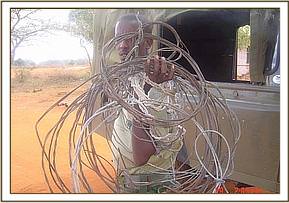
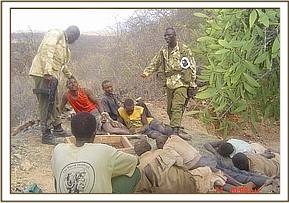

Findings
Kishushe Park Boundary and Tsavo River
Our patrols in this area took place over a period of five days. We have found that this area is a poaching hotspot for both bushmeat and ivory. Cases of armed poachers have been reported in this area and elephant carcasses found. During our patrols we came across 5 big snares and 10 small snares. Even though not many snares were found there was still evidence of poachers in the area.
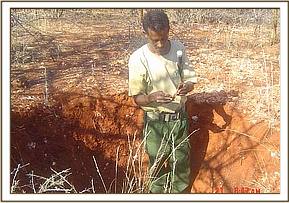
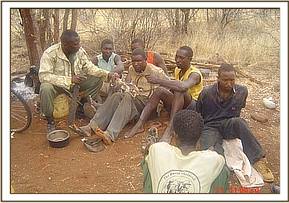
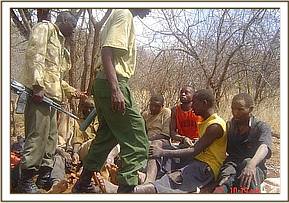
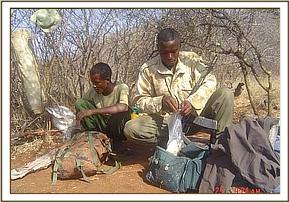
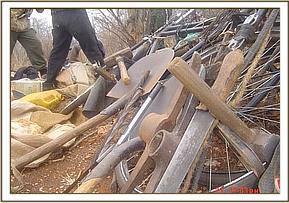
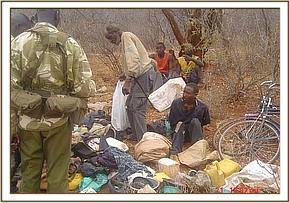

Maktau, Lumo Community Sanctuary
Over the last six months there has been a drastic decline in the snaring levels in this area. Compared to last year there has been a 70% improvement in the levels of snaring in these Community Sanctuaries. There have however been reports of night poaching, which shows that decline in snaring could be due to the fact that the poachers have changed their methods as the de-snaring team has been very effective in collecting their snares.
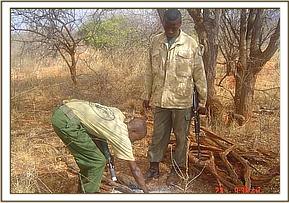
Taita Hills Wildlife Sanctuary
This area has not been properly patrolled for the last three months. During the rainy season the animals move to different are and for this reason the poachers do not set snares in the Sanctuary. During the dry season the animals tend to migrate back to the Sanctuary where there are water sources at the Bura River and Bura Dam. 13 snares for big game were recovered and a new type of snaring was identified whereby the poachers use rope instead of wire to make the snares.
COMMUNITY AWARENESS
Kasngau conservation / Trust training At the beginning of the month the Ziwani and Bura team worked together to train the Kasingau community Scouts about bushmeat operations. The training course took place over five days with two days dedicated to theory and 3 days in the field undertaking de-snaring activities. During the field work 90 snares were recovered, compromising of 52 small snares, 10 big snares and 28 bird snares. Ten spikes were also recovered.
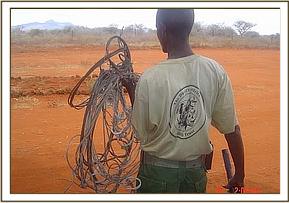
Report by Wambua Kikwatha